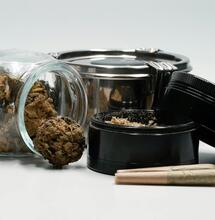New Mexico Retailers Ask for Regulatory Changes

Oversaturation is a common problem in so many legal cannabis markets, including in New Mexico. The crowded market and stiff competition, and ultimately lack of regulation to address these problems, always benefits the illicit trade. In the year past, New Mexico’s Cannabis Control Division (CCD) has issued over $4 million worth of fines in relation to cannabis violations, but have only managed to collect less than ten percent of that sum.
Operators in the cannabis industry called for a change in the way the state handles business, during a recent committee meeting that gathered together retailers, lawmakers and regulators in New Mexico.
“There’s a thriving illicit market; they’re not paying tax revenue; they’re not getting their products tested; they’re not packaging them right; they’re selling to minors,” said Justin Dye, CEO of R. Greenleaf, a company that runs both medical and recreational dispensaries in New Mexico, AOL reported.
“Competing with people who don’t have to play by the rules, who don’t pay taxes, who don’t have to go through testing, who are a danger to our kids, we gotta step up and do something about that,” Dye said.
The heart of the problem for New Mexico’s relatively new cannabis market comes down to familiar trends. The market officially launched on April 1, 2022, and in just two years, it has amassed and accommodated over 1,000 licensed weed retailers. That’s way more dispensary locations than what some of the most popular fast-food chain restaurants like Subway and McDonald’s have around the state.
Even with that many cannabis stores, retailers complain that the black market continues to thrive. Principally because there’s not enough enforcement by the state to control what’s happening on the ground.
A Lot of Work Lays Ahead to Improve New Mexico’s Cannabis Market
At the moment, other legal states like Colorado (itself facing a recession) and Oklahoma (has not even legalized adult-use) have three to five times more inspectors per license compared to New Mexico. Dye told lawmakers that one of the changes that they could implement is to hire more personnel who will work with the Cannabis Control Division (CCD). Inspectors should have more authority, such as “to search, seize and charge” those who break the law, he said.
Another measure suggested for stabilizing New Mexico’s overcrowded and underregulated market includes halting the licensing process for new operators, at least until CCD strengthens its enforcement capacity. A third is to ban hemp-derived cannabinoids, which are not regulated the same as recreational cannabis and have already been banned or restricted in dozens of states this year. On the wider conversation whether to ban or not to ban hemp, you can read more here.
A spokesperson from the New Mexico Regulation and Licensing Department informed lawmakers that the agency has undertaken over 2,000 inspections between January and October this year. In total, the state has 3,000 licensed operators, counting cultivators and manufacturers.
“We’ve struggled, as you’ve seen some of the news media on us, in terms of the percent of the inspections done, we’re working toward it and we’re working really hard,” the spokesperson said.
In addition, lawmakers were also told to think through regulations on lab testing of cannabis products.
New Mexico’s cannabis industry is estimated to be worth $1.3 billion. The Land of Enchantment legalized medical cannabis in 2017, and it became the 18th fully legal state when it advanced a bill on recreational use in 2021. Just in the first year of legal business, over 600 dispensaries opened and more than 6 million adult-use transactions were processed, according to state data.
In the second year, the number of dispensaries has almost doubled, or in other words, it has gone truly wild. It’s not in favor of anybody, and especially not for small businesses that routinely suffer the first in this scenario, when authorities do not take fitting measures to correct oversaturation. Hopefully they do that for New Mexico’s under-regulated market sometimes soon.
Also read on Soft Secrets:
- Vermont Is Also Becoming an Overcrowded Market
- Washington Has No Tracking System Decade After Legalization
- Florida’s Ballot Initiative for Recreational Legalization Falls Short














